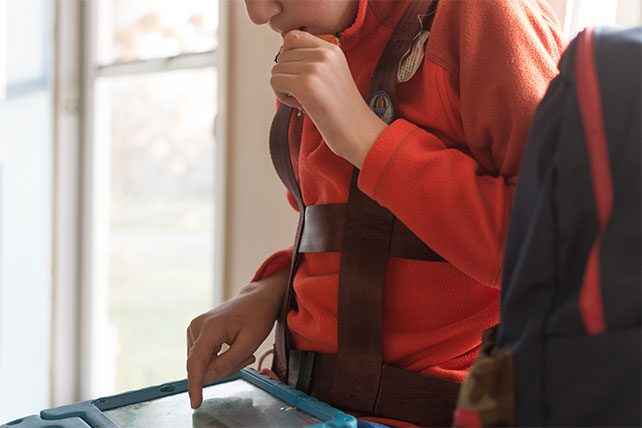Churches often overlook teens who have special needs. “Special needs ministry” is a huge topic in the world of children’s ministry. If your focus is grade-school kids, you can find dozens of books, workshops, articles, and digital resources to help you come alongside youngsters with developmental disabilities. But a “glass ceiling” persists once you move it up a notch into youth ministry. There the conversation seems muted, at best.
Our publishing team at Group was considering a book proposal. A youth worker wrote a guide for ministering to teens with special needs. We liked the book but couldn’t agree on how broadly its appeal would be for the average youth worker. We talk with youth pastors all over the world, all the time. Yet we don’t often hear about ministry to special-needs teens. So we asked our team of youth ministry advisers to “peg” how big this issue is for them.
And we discovered a sleeping giant in youth ministry. Addressing the needs of teens with special needs is a much bigger issue than the public conversation would indicate.
Here’s how two veteran youth workers lean into a major but underemphasized challenge…
Ministering to Teens With Special Needs
1. Be on their team.
Liz Simmonds—We currently have teens with special needs who are all along the spectrum. Kids have ADHD, ODD, Selective Mutism, processing disorders, speech disorders, FAS, anxiety, vision issues, muscular issues, hearing issues, and depression. The key is to educate yourself. Understanding how these students think and process information will help you in ministry. The student and his or her parents are your best resource! I have parents who can tell me what cues their student needs to refocus. They also know what classroom-management styles will help their student succeed.
I had a junior high student who wore hearing aids. He finally told me the soundtrack we ran to create atmosphere in the room made it nearly impossible to hear what people were saying. When the first student with autism joined my ministry, I checked out every book on ASD/Asperger’s from the local library. From there, I pursued learning about Oppositional Defiant Disorder (ODD), then Fetal Alcohol Syndrome (FAS), and then Selective Mutism.
For teens with special needs, and their parents, the biggest thing we can do is let them know we’re on their team. Are we willing to do the work necessary to reach their kid? Are we willing to go above and beyond the job description to meet their needs? Sure, our job is to stretch all kids. But we can’t hold all students to the same standards of behavior or processing. That’s the rub—and the opportunity!
2. Individualize their experience.
Yes, one ASD student “gets” to have his iPad out to doodle when no one else does. But he’s likely paying better attention because of it. And one student who has texture issues doesn’t eat what the retreat dining hall offers. Instead, he “gets” to eat a sleeve of Ritz crackers for lunch. We aren’t going to “fix” something like this on a weekend retreat when his parents have been working on it for years.

